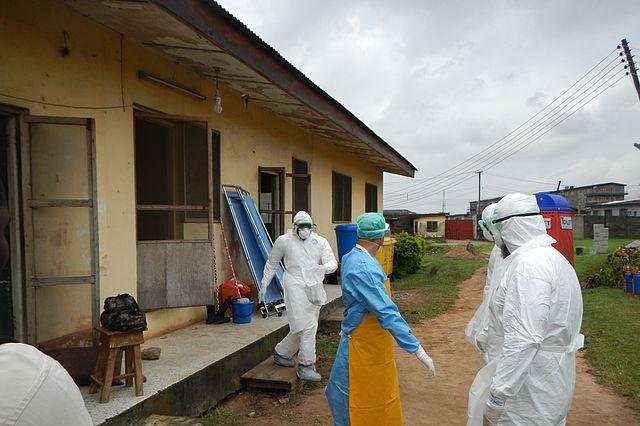A study published in The Lancet said International Monetary Fund policies have hindered the efforts to stop Ebola. An Ebola isolation ward in West Africa (CC/ wikimedia.org/ CDC)
LONDON, Dec. 22 (UPI) -- Cambridge University researchers sharply criticized International Monetary Fund spending cuts, among other things, in the rapid spread of Ebola across Sierra Leone, Liberia and Guinea.
In a report published in The Lancet, the researchers said IMF policies that included reduced government spending hobbled the development of an effective healthcare system in the West African nations. Ebola has killed more than 6,800 since March 2014.
Cambridge sociologist Alexander Kentikelenis, the lead author of the report, said the major reason why the disease spread so rapidly was the "weakness of health systems in the region."
Even though the IMF provided financial support to Sierra Leone, Liberia and Guinea, the lending comes with "strings attached -- so-called "conditionalities" -- tthat require recipient governments to adopt policies that have been criticised for prioritising short-term economic objectives over investment in health and education," Kentikelenis said.
By reviewing IMF policies from 1990 to 2014, researchers from Cambridge, Oxford University and the London School of Hygiene and Tropical Medicine found three factors that led to the weakened healthcare system. These are IMF's requirement of economic reforms, caps on the public-sector wage bills which reduced the ability to hire healthcare professionals and IMF's push for decentralized health care systems.
"All these effects are cumulative, contributing to the lack of preparedness of health systems to cope with infectious disease outbreaks and other emergencies," Kentikelenis said. "The IMF's widely proclaimed concern about social issues has had little effect on health systems in low-income countries."
An IMF spokesman refuted the claims, saying they are "completely untrue."















